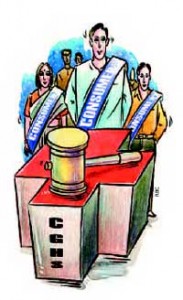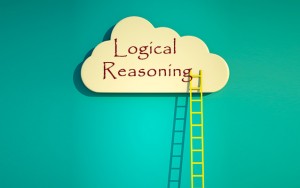In this blogpost, Amoolya Narayan, an Associate at Economic Laws Practice (ELP) and a former student of West Bengal National University of Juridical Sciences, has tried to provide a brief but essential understanding of the legal provisions that encapsulate the rights available to consumers in India. Amoolya has also included a few interesting questions related to consumer protection law in India in the form of an exercise for everyone’s benefit.
Why do we need Consumer Protection laws?
Every product on the market follows a long chain of manufacturing processes. There are many entities that take part in the process of production. Due to the nature of today’s markets, it is essential to have a mechanism through which the consumer’s voice may be heard.
Consumer protection is a recent phenomenon. It first took birth in the United States with Ralph Nader pushing for consumer rights of every citizen, and it was then that March 15th was declared as International Consumer Rights Day.
The Law on Consumer Protection in India was not a citizen initiative; it was, on the other hand, propounded by the Government and a law was passed enumerating the rights of a consumer against defects and deficiencies in goods and services. The Government did not stop at making the law but it also set up consumer fora at various levels of governance and even instituted a consumer information cell, because information is the most powerful tool that a consumer may possess.
A glance at the MRTP Act, 1969
The Consumer Protection Act was not the first and only Act of its kind. There was a law before it which was known as the Monopolies and Restrictive Trade Practices Act, 1969 (MRTP Act), dealing primarily with the conditions of competition in the market, which affected the rights of consumers.
The main objective of the MRTP Act, when it was enacted, was to ensure that the operation of the economic system does not result in the concentration of economic power to the common detriment. In addition, the enactment sought to curb certain factors that accompany such concentration of economic power, viz., the monopolistic and restrictive trade practices. The Act dealt with consumer rights in an incidental manner. It aimed at protecting competition in the economy by ensuring free flow of capital and resources and by curbing manipulation of prices, conditions of delivery or flow of supplies in the market which have (or may have) the effect of imposing unjustified costs and restrictions on the consumers.
An unfair trade practice is one, which, for the purpose of promoting the sale or use of any goods or services, adopts unfair methods, or unfair or deceptive practice. The provisions for curbing unfair trade practices independently seek to safeguard the interest of consumers by providing them protection against false or misleading advertisements and/or similar deceptive trade practices. The MRTP Commission enabled the consumer to approach it in case of complaints.
On the other hand, the Consumer Protection Act has a two pronged approach:
(i) To provide simplified inexpensive and speedy remedy for the redressal of grievances of the consumer
(ii) Consumer education to create awareness as to consumer’s rights.
Therefore, although there are overlaps as to the jurisdiction of the two Acts, there is sufficient distinction between the type of persons who may seek relief and the procedure to seek such relief, the nature and scope of the relief etc.
Comparison between MRTP Act and Consumer Protection Act
Let us compare the two and see.
| MRTP Act | Consumer Protection |
| Regarding Restrictive Trade Practices, the MRTP Act only discusses situations with respect to its effect on the competitive situation in the economy. | The Consumer Protection Act has been enacted in the interest of a single player in the economy i.e., the consumer. |
| The MRTP Act does not apply to many enterprises, such as banking or insurance companies. | This kind of an exemption is not proffered under the Consumer Protection Act.
|
| The MRTP Commission can take up issues suo motu and initiate inquiries into restrictive or unfair trade practices.
|
The Consumer Protection Act is a device to be used by aggrieved consumers and does not operate to regulate the economy as a whole. Due to this, the Act does not envisage suo motu powers to initiate inquiries into restrictive or unfair trade practices.
|
| There is no restriction on any buyer of goods, whether for commercial or non-commercial purposes, to approach the MRTP commission under the MRTP Act.
|
The Consumer Protection Act does not regard a buyer of goods for commercial purposes as a ‘consumer’, as contained in the definition of the Act. |
| Under the MRTP Act, the MRTP Commission was the only body to approach in case of any grievance. | The Consumer Protection Act has a 3 tier redressal setup, at the district, state and national level.
|
| There is no limitation period for those applying under in the MRTP Act. | There is a limitation period of two years within which an aggrieved consumer must file a suit under the Consumer Protection Act. |
Both the MRTP Act and the Consumer Protection Act have similar provisions particularly in the areas of unfair trade practices.
A peek into the Sale of Goods Act, 1930
The sale of goods Act applies when the proprietary right in the goods passes from the seller to the buyer. It deals with a branch of mercantile law, which is based on the simple law of contracts. The principles of the contract Act apply in this statute as well.
This law has special provisions relating to contracts and provides for the rights of unpaid seller against the goods, unpaid seller’s lien, and stoppage in transit. It discusses suits for breach of contract of sale. It also provides for remedies for the buyer in case the seller is in breach of the contract. The buyer can treat the contract as repudiated and may reject the goods in question.
Point of Interest!
The operative concept among people who took part in buying and selling transactions was caveat emptor, and this is a Latin phrase that translates to ‘let the buyer beware’.Under this doctrine, the buyer has no remedy against the seller for defects on the goods bought, including defects that may render the goods unfit for use. If the seller actively concealed the defects, the buyer could proceed against him under fraud or misrepresentation.
With the advent of consumer rights, one hopes it is the era of caveat venditor, where the seller has to beware before selling defective goods or providing deficient services to the buyer, because the buyer’s position is protected by the presence of consumer rights.
The Consumer Protection Act, 1986
This was enacted for better protection of the interests of consumers. Consumer Protection Act imposes strict liability on a manufacturer, in case of supply of defective goods by him, and on the service provider, in case of deficiency in rendering of services.
Consumer Protection Councils
The Act mandates establishment of Consumer Protection Councils at the Centre as well as in each State and District, with a view to promoting consumer awareness.
The Central Council is headed by the Minster in-charge of the Department of Consumer Affairs of the Central Government and the State Councils are headed by the Minister in-charge of the Consumer Affairs in the State Governments.
The Councils are entrusted with various duties over the course of this Act. We shall read about the functions that it is supposed to perform under different sections.
Consumer Courts: District, State and National Level
To provide inexpensive, speedy and summary redressal of consumer disputes, quasi-judicial bodies have been set up in each District and State and at the national level, called the District Forums, the State Consumer Disputes Redressal Commissions and the National Consumer Disputes Redressal Commission respectively.
The Consumer Protection Act, 1986, guarantees the following statutory rights to the consumers.
The right to be protected:
It is the duty of the manufacturers and the distributor not to supply any goods to the consumers which fails to comply with the general safety requirements in all circumstances.
Safety standards are published from time to time by the relevant authorities in relation to many types of consumer goods.
Example: The Bureau of Indian Standards (BIS) and the International Standards Organisation (ISO) are institutes that regulate safety standards and provide validation to quality.
The right to be informed:
Right to be informed about the quality, quantity, potency, purity, standard and price of goods or services, as the case may be, so as to protect the consumer against unfair trade practices like false and misleading descriptions about the nature and quality of goods, exaggerated statements about their power or potency.
Example: A brand making a claim that their hair oil is capable of promoting hair growth or preventing hair loss where there is no such power to an appreciable extent.
It may be noted that a victim of unfair trade practices would be able to come before a Consumer Forum only if he is a consumer within the meaning of the Act. Other buyers would have to go to the Monopolies Commission under MRTP Act.
The right to choose:
Right to choose from a variety of goods and services at competitive prices.
For the benefit of the consumers, the Central Council has been charged with the responsibility of bringing about the organization of markets and market practices in such a way that all dealers are supplied with a variety of goods for the benefit of the consumers and that such goods are being offered at competitive prices. It is only then that the consumers will have access to variety and will be able to enjoy the benefit of competitive prices.
The right to be heard:
Right to be heard and to be assured that consumer’s interest will receive due consideration at appropriate forums. The right to be heard is not only an important consumer right, it is also a principle of natural justice. The Central Council is charged with the responsibility of assuring to consumers that they would be heard by appropriate forums and will receive due attention and consideration from such forums.
The right to seek redressal:
The right to seek redressal against unfair trade practices or restrictive trade practices or unscrupulous exploitation of consumers. The consumers have been given the right to seek redress against restrictive/unfair trade practices or unscrupulous exploitation. The right can be explained clearly by the following example:
Example: Mr. Mehta gave his car for servicing and received it back in 2 weeks. When he took the car out for a drive, he noticed that there hadn’t been any changes made to the car and in addition, the stereo had stopped working.
Mr. Mehta has the right to claim his money back from the car servicing company, as it did not render proper services, and to seek damages for his non-functioning stereo.
The right to consumer education:
Consumer education is essentially the awareness of the rights mentioned above. Once the people are made aware of their rights, they may feel empowered to struggle against exploitation by manufacturers and traders.
Example: The Consumer Protection Act has itself provided for setting up various councils which have the responsibility to provide proper education to consumers as to their rights and remedies.
Goods and Services
“Goods” means every kind of moveable property other than actionable claims and money. It includes stock and shares, growing crops, grass, and things attached to or forming part of the land which are agreed to be severed before sale or under the contract of sale.
“Services” means service of any description which is made available to people, such as banking, transport, supply of electrical or other energy, board or lodging or both, entertainment etc., but does not include the rendering of any free service or under a contract of personal service.
“Defect” means any fault or shortcoming in the standard required to be maintained under any law or contract, or as is claimed by the trader in any manner whatsoever in relation to any goods.
“Deficiency” means any fault or inadequacy in the quality and manner of performance which is required to be maintained by or under any law for the time being in force or has been undertaken to be performed by a person in pursuance of a contract or otherwise in relation to any service;
Redressal
Depending on the facts and circumstances, the Redressal Forums may give order for one or more of the following reliefs:
(1) Removal of defects from the goods,
(2) Replacement of the goods;
(3) Refund of the price paid;
(4) Award of compensation for the loss or injury suffered;
(5) Removal of defects or deficiencies in the services;
(6) Discontinuance of unfair trade practices or restrictive trade practices or direction not to repeat them;
(7) Withdrawal of the hazardous goods from being offered to sale;
(8) Or award for adequate costs to parties.
Here is a legal aptitude exercise to help you understand consumer protection law better
- Principle: Section 2 (d) in defining a consumer in Clause (ii) uses the expression ‘hires and avails of”. The word “hire” means employ of wages or fees”. Secondly the words “any service” in s. 2 (d) (ii) in Consumer Protection Act are very wide.
Rukmini’s son was of poor health all the time, and had to be constantly under medical attention. She had explained his health situation to all his doctors. Yet, one of the doctors was negligent in administering painkillers and sent the boy into a critical asthma attack. Advice.
(a) She can institute a criminal proceeding and sue the doctor for criminal negligence.
(b) She can institute a tortious proceeding against him for negligence, and procure damages.
(c) She can sue him under the Consumer Protection Act, as medical practitioners are also providers of a service.
(d) She cannot sue him as she signed away her rights when she entered into a contract with the hospital by admitting her son there.
Ans: (c)
A medical practitioner can be sued under the Consumer Protection Act for his or her professional negligence resulting in damage to patient. Section 2 (d) in defining a consumer in Clause (ii) uses the expression ‘hires and avails of”. The word “hire” means employ of wages or fees”. Secondly the words “any service” in s. 2 (d) (ii) in Consumer Protection Act are wide enough to bring the delinquent medical practitioners within the ambit of Consumer Protection Act. This was held in the case of Indian Medical Association v. V.P. Shantha.
2. Principle: To be able to make an application under the Consumer Protection Act, one must satisfy the definition of a ‘Consumer’, defined as: a person who buys or avails of goods or hires services under any system of payment.
Does rejection of application for grant of loan by a Bank constitute deficiency in service for which I can approach the Consumer Court?
(a) The bank is a service provider but it is refusing to grant loan to the consumer. The consumer has a claim.
(b) The person is not a consumer until the bank has made the decision to offer their services to him. That decision is at the discretion of the bank.
(c) A loan is a good – therefore, the bank is a seller of goods, and the person trying to buy the loan is a consumer.
(d) None of the above.
Ans: (b)
The Bank has a wide discretion in the matter of granting loans and advances and continuing disbursement of loans sanctioned. The Consumer Courts cannot sit in judgement over the discretion exercised by the Bank and as such you will not succeed in any such action, if taken by you.
- Subho’s car met with an accident in which his car sustained major damages. However, when he made a claim for insurance, it was rejected on the ground that he was not holding valid driving license. Should he approach a Consumer Court for seeking the Insurance claim?
(a) He has to approach the Consumer Court as he has been paying his insurance premiums but is not being protected.
(b) He can approach the civil court under the Motor Vehicles Act and seek compensation although he does not have a driving license.
(c) He can approach the insurance company by using someone with a license to pose as the driver of the vehicle at the time.
(d) He cannot approach the consumer court because the law requires that he should have had a valid driving license.
Ans: (d)
The Consumer Court will not be able to grant Subho any relief as he did not have a driving license. The law (Motor Vehicles Act) required Subho to possess a valid driving license, and the failure to do so prohibited him from claiming the Insurance money.
- Principle: ‘Caveat Emptor’ tells us that the buyer has no remedy against the seller for defects on the goods bought, including defects that may render the goods unfit for use. If the seller actively concealed the defects, the buyer could proceed against him under fraud or misrepresentation.
Fatima wanted to download some software online and she accessed the website. It provided her with some terms which she was too impatient to read through, and she clicked on the software. She found out that it was incompatible with her computer and caused it to crash. Can she sue the website owner, a citizen of a foreign country, for the same?
(a) The concept of buyer beware tells us that the consumer does not have a remedy against the seller.
(b) Since the website owner is a citizen of a foreign country, the Indian courts will have no jurisdiction over him.
(c) Since Fatima did not bother to read through the terms of the contract, and click-wrapped it, she has no remedy because of caveat emptor.
(d) None of the above.
Ans: (c)
Since Fatima failed to read and understand the terms of the contract, when the information was available to her, she cannot avail of the protections of the consumer under any Act as she should have taken care before entering into the contract.
- Principle: A written complaint, can be filed before the District Consumer Forum, State Commission and the National Commission up to their pecuniary limits, in respect of defects in goods and/or deficiency in service. But no complaint can be filed for alleged deficiency in any service that is rendered free of charge or under a contract of personal service.
Veena’s desktop at home was giving her a lot of trouble, so she asked the technical personnel in her office to come by and take a casual look, and tell her if he noticed anything wrong. She had a lot of important and confidential information stored in her desktop, but when the person came and began to tamper with it, he caused her hard disk to fail, losing all the information. She wanted to sue him in the Consumer Court for the loss incurred to her due to this. He argued that he had not charged her for the service rendered. Decide.
(a) Veena’s company will be vicariously liable for the loss of important and confidential information due to the tech personnel’s mistake.
(b) The tech personnel will not be liable as he was not under a contract for services, and she is not a consumer.
(c) Veena can sue him in the civil court for negligence and breach of duty of care.
(d) None of the above.
Ans: (b)
As the principle states, the technical personnel cannot be held liable under the Act, as he was not under a contract for services with Veena. Moreover, he had not taken payment from her for the service, and hence she was not a consumer under the Act.
Logical Reasoning
In the following 2 questions, there will be an assertion and a reason provided. You have to decide whether the assertion is right, and then decide whether the reason provided for it is valid.
- Assertion: The Consumer Protection Act, 1986 is a badly drafted legislation that requires a major overhaul.
Reasoning: The MRTP Act protects the rights of the Consumer in an ancillary way, while ensuring that the market conditions and competition are healthy.
(a) Both assertion and reason are right, but the assertion is not an effect of the reason.
(b) The assertion is not valid, but the reason provided is a valid statement.
(c) The assertion and reason are both false and invalid.
(d) The assertion and reason are both right, and the assertion is a natural consequence of the reason.
Ans: (b)
The reasoning quite clearly has nothing to do with the statement asserted, and therefore, option (b) which affirms the validity of the reason, but denounces the assertion is the right answer.
- Assertion: I have a cause of action if my son bought biscuit packs where he was promised that he would grow 5 inches in 5 months, and he did not.
Reasoning: One of the cardinal rights of the Consumer is the right to information which is accurate and not misleading.
(a) Both assertion and reason are right, but the assertion is not an effect of the reason.
(b) The assertion is not valid, but the reason provided is a valid statement.
(c) The assertion and reason are both false and invalid.
(d) The assertion and reason are both right, and the assertion is a natural consequence of the reason.
Ans: (d)
If the biscuit manufacturers promised that whoever consumed those biscuits would grow 5 inches in 5 months, it is a misleading suggestion as it is medically rare and will not be a direct consequence of eating biscuits.
- Premise: People who buy goods or avail services for commercial purposes are not considered ‘consumers’ and cannot avail of the protection under the Consumer Protection Act, and they cannot approach the Consumer Courts.
(a) Wholesale dealers who find any defect in the goods.
(b) Instructors who receive training in instruction from an institute find the training poor, and feel a deficiency in the service.
(c) Deepak subscribes to many magazines and has a huge collection. He decides to sell them second hand and there is a lapse in the delivery of magazines.
Which of the above statements would be an application of the stated principle?
Ans: (a)
Instructors who receive training are being provided a service unto themselves. The training that the instructor receives is not the same as the instruction that he will provide. Deepak does not buy those magazines for the purpose of resale. He subscribes to magazines for reading pleasure and has every right to approach the consumer court in case of deficiency.
- Which of the following would amount to a contract of service?
(a) A freelance journalist writing for a national magazine.
(b) A municipality worker who cleans your roads every morning.
(c) A personal butler or attendant who waits on your every need.
(d) A free website that provides database and storage services for your business.
Ans: (c)
The freelance journalist works on a contract basis and will thus be employed under a ‘contract for services’. The municipality worker is an employee of the municipality and does not provide services to you in particular. A personal butler is employed under a contract of service. The free website is not under a contract because there is no consideration.
- An unfair trade practice is one, which, for the purpose of promoting the sale or use of any goods or services, adopts unfair methods, or unfair or deceptive practice.
Which of the following would amount to an unfair trade practice?
(a) An advertisement for hair oil that says that it cures baldness.
(b) A promotional event wherein children were targeted to ‘educate’ them about the benefits of carbohydrate rich snacks.
(c) An advertisement where one company maligns another company’s product by poking fun at its brand.
(d) A brand that buys up local shops so that they do not stock any other brands.
Ans: (a) and (b).
The advertisement for the hair oil was false and misleading; the campaign to ‘educate’ children to some fatty snacks was deceptive and harmful; the advertisement where one company maligns another will not directly result in harm to the consumer as we take reasonableness of the consumer into account. The brand that buys up local shops is aggressively expanding and is not conducting business unfairly, although it may be restrictive practice.
 Serato DJ Crack 2025Serato DJ PRO Crack
Serato DJ Crack 2025Serato DJ PRO Crack
















 Allow notifications
Allow notifications


